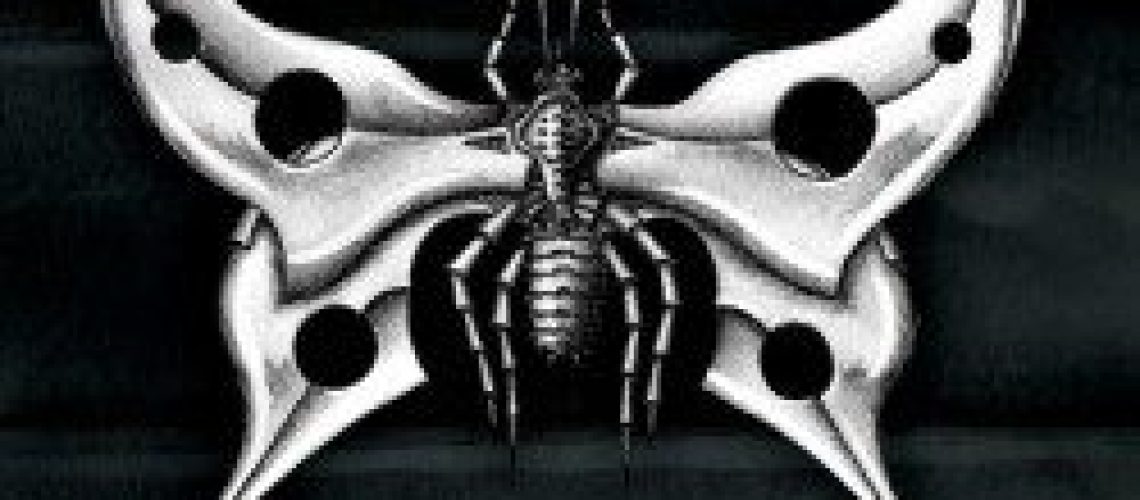Valhalla, written by Ari Bach, is dark, gritty, dangerous, and subtly representative. Bach unpacks his new world, layering loud violence, subtle queer identities, and a disturbing dystopian premise that promises an interesting alternative. Valhalla pushes the boundaries of science fiction to make you question the lines drawn between dystopian governments, outside companies, and the people who make up the world those entities control, and sets up the foundation for a strong trilogy that centers around a queer female protagonist.
Violet MacRae is our wonderfully violent narrator, living in the year 2230, when war is obsolete and most everyone knows their place. With her propensity for violence and her less than spectacular intelligence, Violet doesn’t fit in, and doesn’t want to. Faced with uncertainty about her immediate future, and ostracized from the only place in polite society that she had even a slight chance of fitting into, Violet returns to an empty home and is subsequently snatched up by Valhalla. That is a secret military-esque organization that keeps the outer world in line with their unique methods, and there, Violet finds a real home. But Valhalla and her new friends are in danger, and Violet finds her new skills are stretched to the limit as she defends her safe haven from genetically enhanced criminals.

I discovered this book on Tumblr, where the author runs the fantastically hilarious account “facts-i-just-made-up” and was hooked as soon as I saw it featured a queer main character. The book itself didn’t disappoint, either. The narrative itself is consistent, if a bit slow at first, following Violet through her own eyes as she moves from an unremarkable existence to an unbelievable position of strength and clarity. Bach’s worldbuilding is strong and immersive, with enough humor and action to carry you through the seemingly endless training montages and generally emotion-less tone of Violet’s inner thoughts. The pace picks up about halfway through as Violet is launched into increasingly difficult situations and a well-connected plot, and it is a wild ride to an ending that is both frustrating and positive.
Violet herself is an extremely interesting protagonist. She’s an interesting meld of detached emotions and violent tendencies, whose emotions never quite translate through the page—definitely not your traditional YA protagonist. It was a bit of a struggle to adjust to her point of view, but it is a refreshing perspective from the eyes of someone who knows they don’t fit in. The fact that Violet is queer is never made out to be a big deal, and that is one of the reasons I heartily enjoyed this book. She grows from a young girl who is uncertain of herself because she doesn’t fit neatly into any part of society, to someone who unapologetically embraces who they are—and breaks the mold of almost every stereotype we see in traditional media. Her queer identity is just a part of her larger sense of self, no bigger than her love of violence, no smaller than her advanced combat abilities. She is atypical, awkward, and real without falling victim to the “strong-female-character” tropes. The romance plot is not the center plot device of the novel, but Violet’s queer identity is still real and well-written. Violet is a complex person outside of her attraction to another member of Valhalla, and this helps her grow as a person as well open her up to real emotions. Her experience may not be the norm, but that’s why it feels so authentic.
The technology in this world is a meld of traditional and new, with people linked to the internet from birth, specialized weapons and weaponized body modifications, and medical technology that can even bring you back from death. There are so many intricate parts of that tech that are lightly hinted at and make you want to explore deeper into Violet’s gritty world, and it’s fun to see how senseless violence has evolved into an artform with such technology. If I had one complaint, it would be that I wanted to know just a little bit more about that technology. We generally get a glancing view of the work behind the tech, and we could have benefitted from a deeper inspection into the machines and weapons that make Violet’s life a hell of a lot more interesting.
This book is unique in that it takes a dystopia, stuffs it with a full platoon of anti-heroes, and then cracks open the window just enough for you to see inside the roiling mess. The universe is immersive and it is easy to engross yourself in the beauty of a hard core sci-fi world with wildly different values from our own, and with the bonus of a lesbian romance. Said romance is not center stage, but it is important enough to the narrative and to Violet’s growth as a woman that the novel wouldn’t carry through nearly as well without it. Overall, this is a solid and good read, if a little tedious during some of the downtime between action scenes. But if you’re easily grossed out by graphic descriptions of combat, this probably isn’t your type of book.
With a pleasant and subtle queer romance, a sprinkling of walruses (yes, I did say walruses), and an abundance of creative violence, Valhalla is the beginning of something unique and dazzling.







